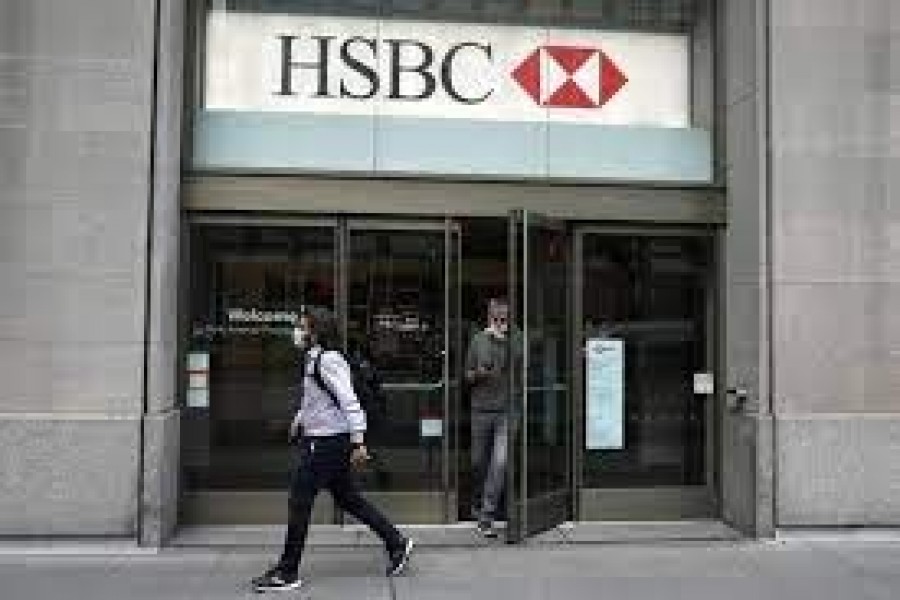HSBC Holdings on Tuesday signalled it would embark on a pandemic-induced overhaul of its business model, seeking to flip its main source of income from interest rates to fee-based businesses.
Reporting a 35 per cent tumble in quarterly profit, Europe’s largest bank also accelerated plans to shrink in size and will slash costs further than previously suggested.
The planned changes to its business model mark one of the biggest shifts in strategy to date from HSBC, which has long touted its ability to generate interest income from its more than $1.5 trillion in customer deposits.
But with interest rates worldwide now rock-bottom and even turning negative, the bank is struggling to charge more for loans to borrowers than it pays out to depositors and it warned that net interest income would remain under pressure.
In a potentially seismic shift for the banking industry, HSBC also said it could start charging for products such as current accounts that customers in some markets such as Britain expect to be free.
“We will have to look at charging for basic banking services in some markets, because a large number of our customers in this environment will be losing us money,” Chief Financial Officer Ewen Stevenson told Reuters.
The restructuring measures helped its Hong Kong-listed shares jump more than 5 per cent, although they have still lost nearly half their value for the year to date.
Underscoring its challenges, the bank’s revenues fell 11 per cent compared with the third quarter last year to $11.9 billion.
The 35 per cent slide in pre-tax profit to $3.1 billion, however, was not as deep as expected, better than a consensus estimate of $2.07 billion as HSBC flagged an easing in bad loan provisions.
HSBC now expects losses from bad loans to be at the lower end of the $8 billion to $13 billion range it set out earlier this year.
“This latest guidance, which continues to be subject to a high degree of uncertainty due to Covid-19 and geopolitical tensions, assumes that the likelihood of further significant deterioration in the current economic outlook is low,” it said.
Restruturing Revved Up
Faced with fewer options to bolster revenue growth, Asia-focused HSBC has been looking to reduce costs globally and in June resumed plans to cut around 35,000 jobs it had put on ice after the coronavirus outbreak.
Other measures in the lender’s global restructuring drive, first unveiled in February, include the disposal of its French business, which it may have to sell at a big loss, Reuters reported last month.
HSBC said on Tuesday it plans to reduce annual costs to below $31 billion by 2022, a more ambitious target than it set out in February and well below the operating expenses of $42.3 billion it reported in 2019.
It will also accelerate the transformation of its US business, where it has long struggled to compete with much bigger local players, and will provide an update at its 2020 full-year results in February.
Analysts and some investors have long urged the lender to dispose of its US retail business entirely, and HSBC earlier this year said it was slashing its branch network in the world’s biggest economy.
HSBC, which in common with other British lenders stopped paying dividends earlier this year at the request of regulators, said it would communicate a revised dividend policy - also in February. Analysts and investors fear the lender could cut payouts in the long run.


